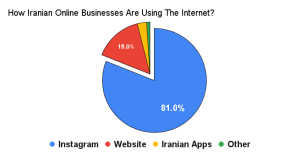Search Engine Optimization (SEO) is the practice of optimizing your website to increase its visibility and ranking on search engines like Google, Bing, and Yahoo. With the increasing number of websites on the internet, it has become crucial for businesses to have a strong online presence to attract and retain customers. In this article, we will dive into the basics of SEO and how it can help your business.
Why Is SEO important?
SEO is important because it helps websites rank higher in search engine results pages (SERPs), increase their organic traffic from search engines, and attract more visitors. SEO stands for Search Engine Optimization and the process of optimizing a website so that it can be easily found in search engines such as Google, Yahoo, and Bing.
Websites that are optimized for search engines are usually more user-friendly and provide more relevant content to users. While this isn’t a requirement for every company, if your website uses content marketing to attract new customers and you haven’t done SEO, it’s a good idea to start now. This process is to see if customers will find you as you are looking for them.
Many companies today use content marketing as a way to sell to potential buyers rather than simply trying to reach people who might be interested in their products or services in general.
This means that companies must regularly find new ways to find and manage relevant content, and SEO is one of the most important tools in this process. SEO has grown exponentially over the years with the advancement of technology primarily due to advancements in social media websites like Facebook, Twitter, and Instagram.
How does SEO work?
SEO works by optimizing a website’s content, conducting keyword research, and obtaining inbound links to increase that content’s ranking and website visibility. Although it may be possible to see results after the website’s SERP index is checked by the major search engines, it may take months for SEO efforts to be fully implemented.
One of the biggest ways to rank higher in search engines is to create content. To create content, you must first acquire knowledge related to the subject and then write about it. With that in mind, learning how to write engaging blog posts is an integral part of any SEO campaign.
How do search engines work?
Google search is an incredibly powerful tool that we all use on a daily basis, whether it’s trying to find a new recipe to cook for dinner, looking to review movies we want to see, or trying to find the latest news on the subject. This is a topic that interests us, but have you ever wondered how it works? How does Google manage to find and sort the billions of pages on the Internet to provide us with the most relevant and useful results?
The answer lies in a complex algorithm that uses various factors to determine the relevance and credibility of a web page. This algorithm is constantly updated to ensure that search results are as accurate and useful as possible. Here are some of the factors that Google takes into account:
Keywords
When you type a search term, Google looks for pages that contain the keywords you used. However, it doesn’t just look for an exact match. Also, synonyms, related terms, and alternative spellings mean that even if you don’t use the exact phrase that someone else might be using in their search, your page can still show up in their results.
Content quality
Google aims to provide quality content to its users, so it considers the overall quality of the page content. Factors such as originality, usefulness, and relevance all play a role in determining the value of a page to users.
Backlinks
Google also looks at the number of other sites that have linked to your site. This is called a backlink and it is important because it shows that other websites find your content valuable and worth sharing with their audience. Think of it like a referral system, where the more referrals you get, the more credibility and trust you have.
Quality over Quantity
However, it’s not just about how many backlinks you have, but also the quality of those links. Google wants to see that these links are coming from reputable and relevant sources within your industry.
SEO vs SEM
SEO focuses on creating and improving web pages to improve their ranking in organic search results. SEM focuses on using paid advertising to rank at the top of the SERPs.
Continuing the topic of SEO and SEM, let’s go a little deeper into the differences between these two strategies. As mentioned earlier, SEO is the optimization of your website in order to improve its ranking in search engines like Google. This includes everything from choosing the right keywords to improving your site content and making sure your website is mobile-friendly.
When it comes to optimizing your website, one of the most important factors to consider is your keywords. These are the words and phrases that people search for when looking for information related to your business.
In order to attract the right audience, you need to choose keywords that are relevant to your site’s content. One way to find relevant keywords is to use a keyword research tool like Google Keyword Planner or Moz Keyword Explorer. These tools will help you identify popular search terms related to your content.
On the other hand, SEM (Search Engine Marketing) is a more direct approach that involves paid advertising. These ads are designed to appear at the top of search engine results pages, giving them more prominence than organic results. SEM can be a very effective way to drive traffic to your website, provided you have a thorough understanding of your target audience and are willing to invest the necessary advertising budget.
The main advantage of SEM is that it provides almost immediate results. As soon as you launch an advertising campaign, your ads will appear on search engine results pages, which means you can immediately attract potential customers. But, like most things in life, there are pros and cons when it comes to SEM (Search Engine Marketing).
The biggest advantage is that you can see results almost immediately. As soon as the ads start running, people will start seeing them on search engine pages. This is great if you need to drive traffic to it
Keyword Research
Keyword research is the foundation of SEO. It involves identifying the keywords and phrases that people use to search for products or services related to your business. Once you have identified these keywords, you can use them to optimize your website’s content, meta descriptions, and titles.
On-Page Optimization
On-page optimization involves optimizing your website’s content and structure to make it more search-engine friendly. This includes optimizing your website’s URL structure, meta descriptions, titles, headings, and content. By doing this, you can improve your website’s visibility and ranking on search engines.
Link Building in SEO
Link building is another crucial aspect of SEO. It involves getting other websites to link back to your website. The more high-quality links you have pointing to your website, the more search engines will consider your website to be authoritative and trustworthy.
Mobile Optimization
In today’s world, more and more people are using mobile devices to access the internet. Therefore, it is important to ensure that your website is mobile-friendly. This includes optimizing your website’s layout, font size, and images to ensure that they are easily readable on mobile devices.
Local SEO
If you have a local business, then local SEO is crucial for your success. This involves optimizing your website for local keywords and phrases, such as “best restaurant in [city].” By doing this, you can attract more local customers to your business.
SEO Analytics
Finally, it is important to track your website’s performance using analytics tools like Google Analytics. This will allow you to see how many people are visiting your website, where they are coming from, and which pages are most popular. By analyzing this data, you can make informed decisions about how to optimize your website for better performance.
White hat SEO VS Black hat SEO
White hat SEO refers to the practice of optimizing a website or webpage using ethical and legitimate techniques that comply with search engine guidelines. This includes optimizing content for users, improving website speed and performance, and building high-quality backlinks. The goal of white hat SEO is to improve search engine rankings while maintaining the integrity and credibility of the website.
Black hat SEO refers to unethical techniques used to improve a website’s search engine rankings. These tactics violate search engine guidelines and can result in penalization or even being banned from search engine results pages. Examples include keyword stuffing, cloaking, and buying links. It’s important to prioritize ethical and sustainable SEO practices to ensure long-term success.
SEO tools
SEO tools are software or online platforms that help optimize websites for search engines. They can help with tasks such as keyword research, site audits, backlink analysis, tracking search engine rankings, and more. Some popular SEO tools include Google Analytics, Ahrefs, SEMrush, Moz, and Ubersuggest.
How to do SEO?
Search Engine Optimization involves optimizing your website and content to improve its visibility and ranking on search engine results pages. Here are some steps to get started with SEO:
- Conduct keyword research to identify the search terms and phrases your target audience is using.
- Optimize your website structure, including page titles, meta descriptions, and URL structure.
- Create high-quality, original content that includes your target keywords.
- Build high-quality backlinks from other reputable websites.
- Monitor your website’s performance using analytics and make adjustments as needed.
Conclusion
In conclusion, SEO is a complex but essential practice for any business that wants to succeed online. By following the basics of SEO, businesses can improve their website’s visibility, attract more customers, and ultimately increase their revenue. Do you need SEO services? Just call us!


![Local SEO: What is it and How to do it! [Complete Guide ]](https://panamarketing.ir/english/wp-content/uploads/2023/05/Local-SEO-What-is-it-and-How-to-do-it-Complete-Guide-300x200.webp)
